Our Allies for All blog posts shine a spotlight on individuals and organizations in our community that are helping make our world a more welcoming place for everyone. In these profiles we explore what the word “welcome” means, appreciate the inspiring things happening in our community, and learn about the creative ways that we can continue moving forward together. We’re sharing these stories to celebrate our community, inspire others, and show the power of a message turned into actions big and small.
Today’s Feature
Meet Diana Fraser: Queer Filmmaker and Director of "Patient No More"
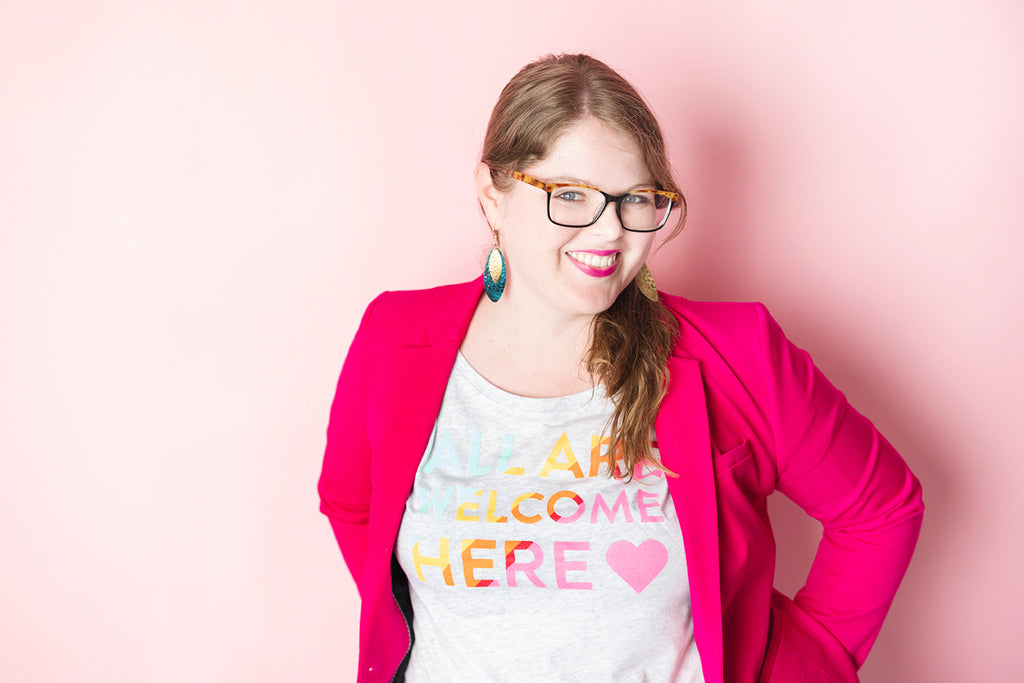
WRITTEN BY LIZ SPIELMAN // PHOTOS BY SHUTTERSMACK & DIANA FRASER
Growing up in rural Pennsylvania, queer filmmaker Diana Fraser felt fortunate to find a doctor she was comfortable coming out to. But when she moved to Minneapolis, she felt afraid trying to find a new doctor. As a result, she only sought care when absolutely necessary. It wasn’t until she discussed her experiences with her friends that she realized she wasn’t alone and that many felt the same way.
"I brought my hesitance up with my queer friends and they all had the same reservations about seeking care as I did. I started to ask why no one seemed to be hearing these conversations outside of personal exchanges."
Originally planning to be pre-med in college, Diana made the switch to a career in film, receiving a degree in Cinema and Media Studies at Carleton College. Since graduating, Diana has worked on the logistical side of productions, worked on multimedia series, digital series, documentaries, live productions, studio shows, and on a number of feature and short films.
With the skills in film and the passion for telling stories, Diana set out to create a space for those missing conversations around health care, developing the idea of a 5-part miniseries around women's health care.
"I always loved telling stories, but throughout college and my early career I had stayed behind the camera. I typically freelance as a producer (the project manager of the film world). But even so, I kept mentioning this film idea offhandedly until finally a friend said, ‘Why don't YOU make it?’ It was a game-changer for someone to encourage me to direct instead of helping create someone else's vision."
Though the miniseries never happened, Diana did receive some funding through the Minnesota State Arts Board in 2018, and she was able to bring part of her miniseries to life, with her directing debut film Patient No More.
"When I first started my mantra was: if this film just makes one person feel like they deserve accurate and affirming care, it will have done its job."
The documentary draws you in immediately by beginning with the simple question: “When I say health care, what do you think of?” It then dives into powerful interviews and stories, creating a welcoming space where historically marginalized groups and individuals have a chance to see and be seen - and most importantly, to have their stories heard. From preventative care to mental health to family planning and everything in between, Patient No More identifies barriers that impact quality of care and quality of life from a range of perspectives. Community advocates, patients, health care providers, educators and more speak frankly about their experiences navigating our complicated health care system and supporting more care specific to the needs of LGBTQ+ women.
Making Space for BIPOC Women
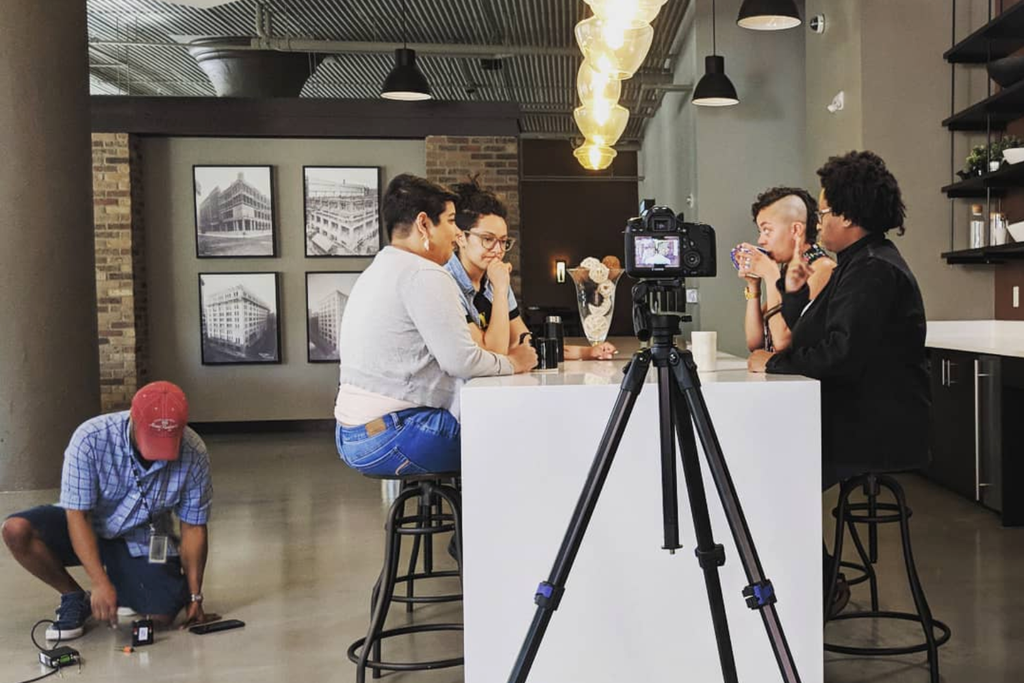
The documentary also creates an important and much needed space to feature voices from LGBTQ+ BIPOC women. Two thirds of the way through the documentary, audiences are brought into an incredibly powerful roundtable discussion between exclusively queer women of color.
It's in this space, that audiences are able to listen into these vital conversations and hear how things like social justice, physical autonomy, and sex education are all intricately connected and inform one another. Also, importantly, that queer women of color are not a monolith: everyone has different needs!
"Their wisdom was critical to understand how queer bodies - especially BIPOC queer bodies - are affected in medical spaces, and perhaps most importantly, how they are trying to change those practices through intentional education and validation."
Diana said that particular section of the film was essential, and that their voices were not only critical to the round table conversation in the documentary, but also to the ongoing conversation at large.
"You can't talk about queer women's health care if you ignore BIPOC queer folks. You can't just erase an entire swath of people and call the rest of the story 'complete.' Out of the 21 womxn we interviewed more than half were BIPOC queer folks. The fact that their voices have been historically left out of the conversation is inexcusable. When I wrote the grant, I made a commitment: this film was not allowed to proceed if we weren't fully committed to representation in front of and behind the camera. It's a practice I hope all media companies will adopt with pride in the next few years. To me, it's no longer 'optional;' it's necessary."
Making a more welcoming community
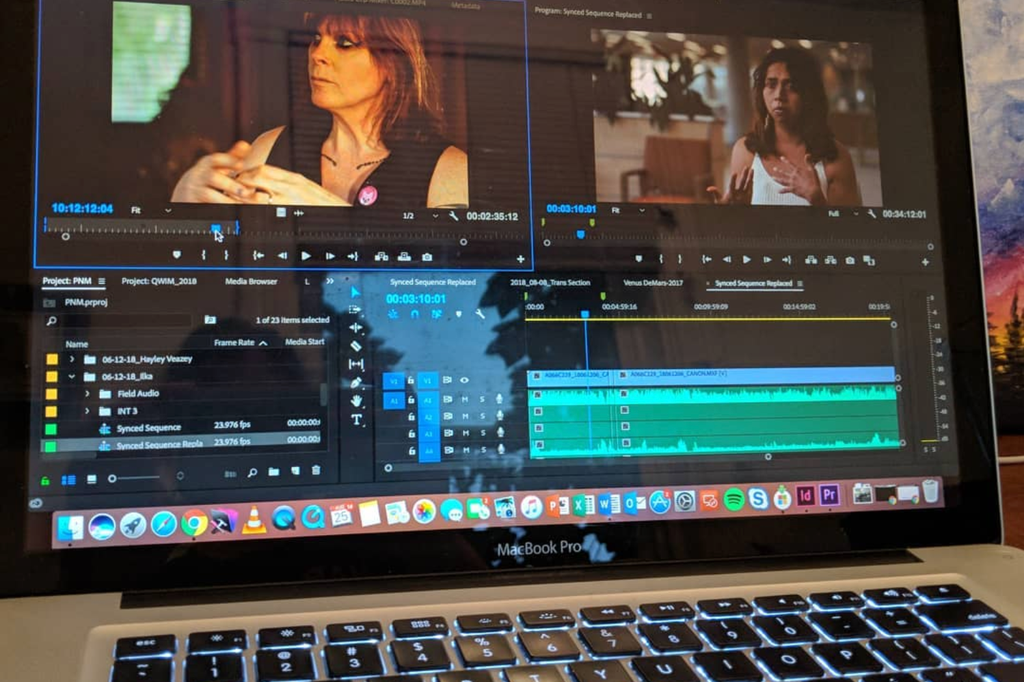
Patient No More's title itself provides clever wordplay and nicely ties in the film’s overall goal of acknowledging the systemic revolution that is needed for LGBTQ+ women to create healthier and stronger communities - something that will not be patiently waited for any longer. This change starts with healthcare leaders and companies listening to their patients and working to create health care environments that are supportive of everyone in the LGBTQ+ community.
"I would urge folks in health care leadership to listen to queer women and their advocates. We are the experts on our bodies. And we are looking for good medical partners to create change in systems small and large."
While working on her documentary, Diana discovered that there are many health care providers, companies, and organizations working to create more open, inclusive, and welcoming spaces with an LGBTQ+ focus including: Hennepin Healthcare, Park Nicollet Gender Services Clinic, Family Tree Clinic, Smitten Kitten, Red Door, Women's Cancer Resource Center, Gender Justice, JustUs Health, and Reclaim.
Unfortunately, one issue near and dear to Diana's heart had to be left on the cutting room floor: the harmful effects of bi-erasure. It is not only prevalent in health care, but in the larger LGBTQ+ community. Accepting the "B" in the LGBTQ+ acronym is to welcome everyone and make a healthier and stronger community. After all, isn't that the goal?
"The queer community is comprised of so many beautiful facets of identity, orientations, attractions, and romantics. Diminishing that rainbow of experiences is heartbreaking to me, but more importantly it is dangerous. Bisexual folks report some of the highest rates of mental health conditions in the country, and approximately 40% of bi-identified folks have attempted suicide. Our reality is not a joke, and should not be dismissed or ignored."
Becoming a better ally and accomplice
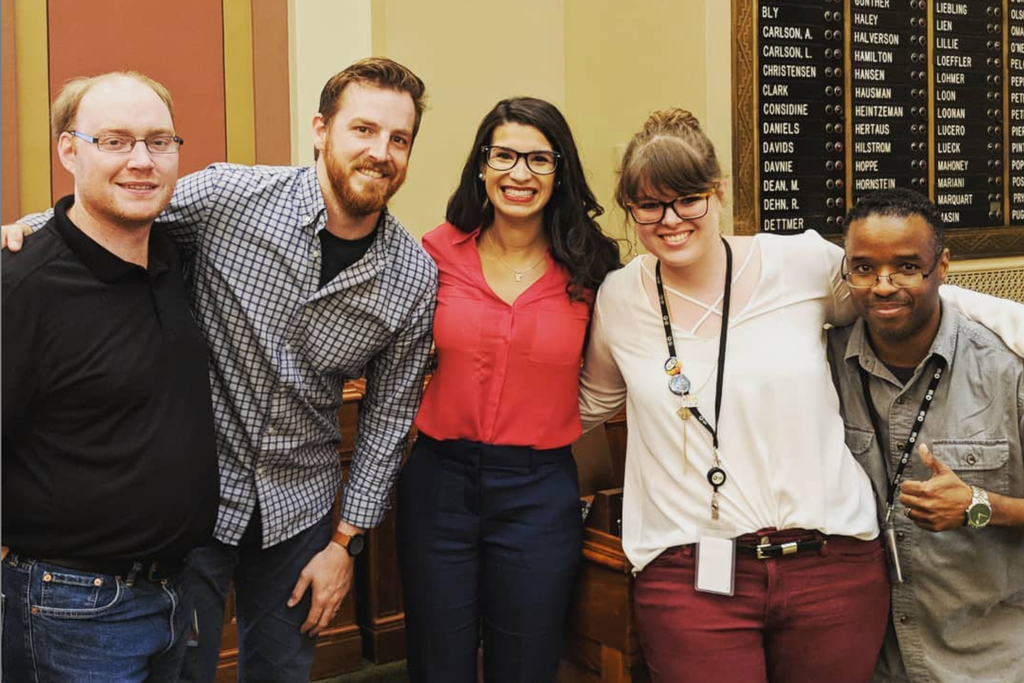
During the COVID-19 pandemic, Diana is still hard at work telling the stories of underrepresented voices and bringing positive energy into the world. As Patient No More launches into the distribution phase, Diana is researching two potential projects: the first is a queer digital series about faith and spirituality; the second is a follow-up documentary about queer veterans' access to health care. She has also found other outlets for her love of creativity and community using her sewing skills to make masks for hospital employees and immunocompromised friends. Over 75 and counting!
In the aftermath of George Floyd’s murder, Diana reminds us that it’s important to jump in and commit to doing the important work to fight for justice and systemic change. She reflects on some important advice shared by former Minnesota State Representative Erin Maye Quade in Patient No More: "We don't need allies anymore -- although allies are wonderful -- we need accomplices." To Diana this means that the ally path is intrinsically linked to becoming an accomplice for all manner of social justice work. "It is a long road and it's a journey I will always be on as a white woman, regardless of my other identities. But I am committed to walking it. It is hard. It suffers missteps and reroutes. It requires compassion and graciousness. It necessitates painful self-reflection. It emphasizes unlearning and relearning what you were taught. But the work is worth it."
Save the date
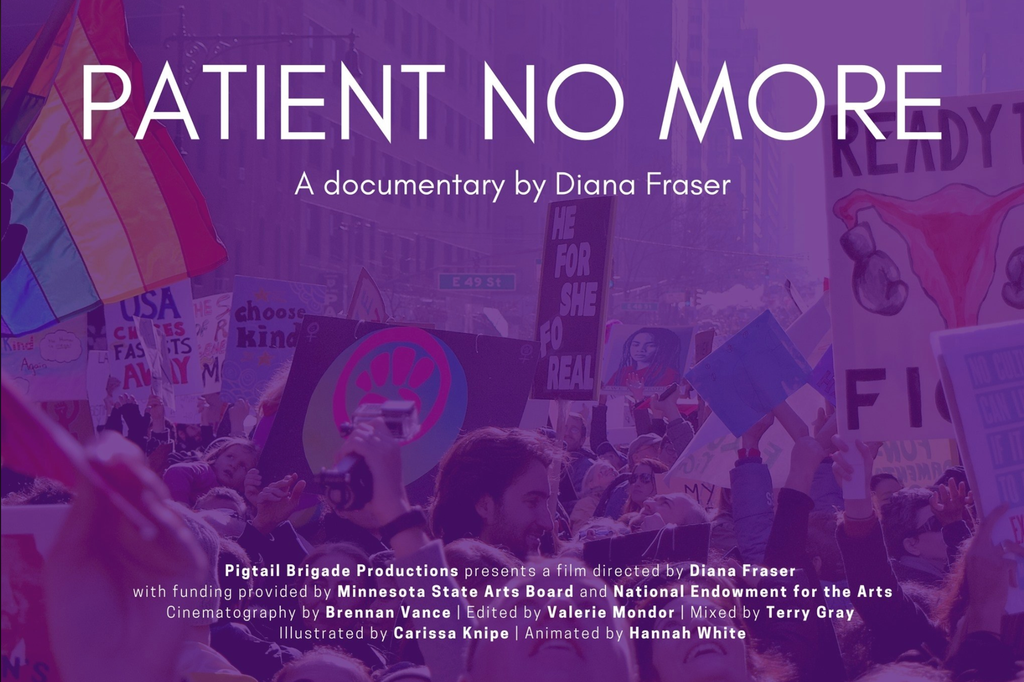
In celebration of Pride month, Twin Cities PBS is featuring programming centered on telling the stories of the LGBTQ+ community. On June 25, TPT will be hosting a virtual screening Patient No More with a filmmaker Q&A from 7:00-8:30 p.m. Tickets are free and available on Eventbrite. Patient No More will also air on June 29 at 10 p.m on TPT2 as part of their expanded Pride programming. See the complete schedule and more at tpt.org/pride2020.
Interested in hosting your own screening? Contact Diana through the Patient No More website.
Nominate an Ally for All
Help us celebrate the incredible individuals and organizations that are turning the All Are Welcome Here message into action in our community. Nominate as many people as you like (even yourself, we won’t tell). Selected Allies for All receive:
- $100 donation to a cause they love
- An interview and photoshoot to be featured on the All Are Welcome Here blog and social media
- Free All Are Welcome Here swag
